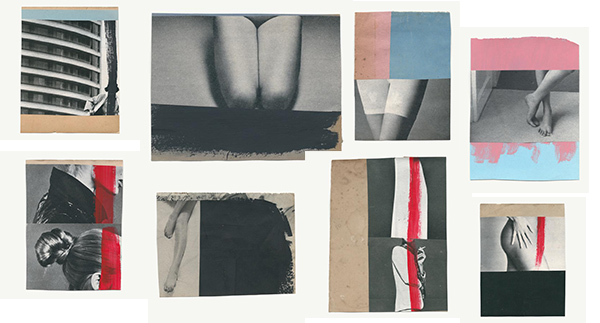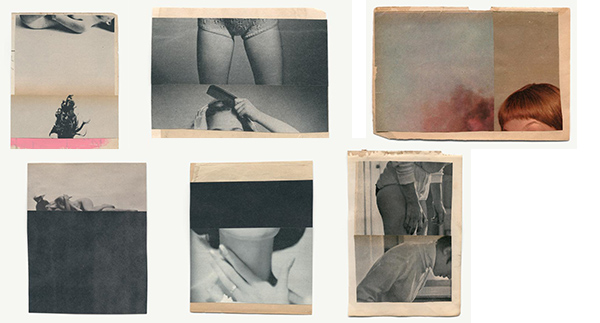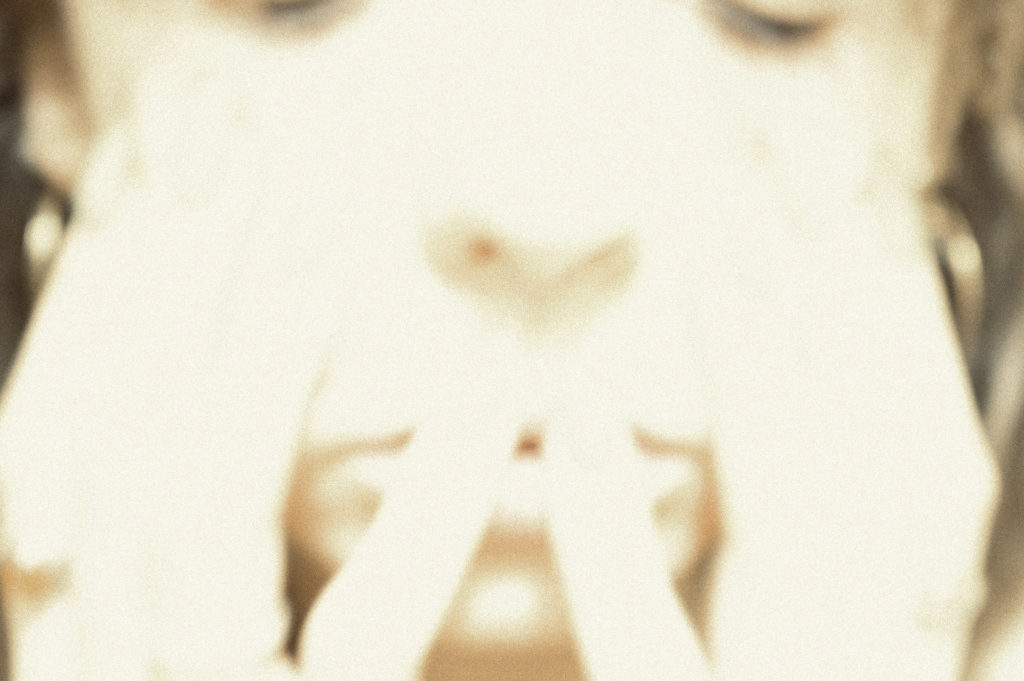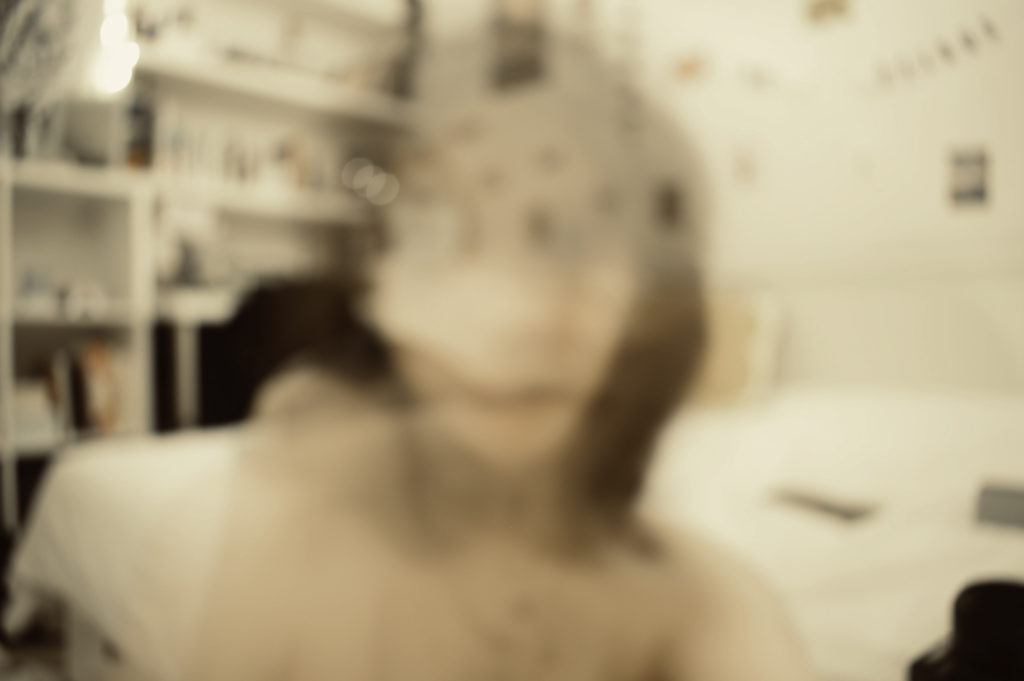Katrien de Blauwer was born in the small provincial town of Ronse (Belgium). After a troubled childhood, She moved to Ghent at a young age to study painting. Later she attended the Royal Academy in Antwerp to study fashion. A study she abandoned. It was at that time she made her first collage books, actually studies and moodbooks for fashion collections. At a later age she began collecting, cutting and recycling images as therapeutic self investigation. Her images consist of mostly feminine figures which in turn makes her work somewhat of a feminist movement. As she created collages made up of found photographs and magazine cut outs, she took things that weren't her own, and for me and from my view of her work mirrors the early start of the Feminist movement; when women started to fight for their rights and take back what was rightfully theres from the patriarchy.


DIRTY SCENES
In Dirty Scenes, pages are often overlaid with paint and crayon, disrupting the intimacy of the images. Although unspoken, the narrative seems to draw from the artist’s own life – her body, femininity and sexuality, as well as alluding to absent male figure and various other unknown female characters, creating a sense of unknown which viewers often perplexed and questioning. Anonymity is a central theme in de Blauwer’s work, she describes it as “an important part of the language”. “In Dirty Scenes, anonymity is prominent because this series deals with hidden anonymous encounters,” she says. By working this way, de Blauwer hopes that both herself – the artist – and the audience can appreciate the story and experience it in unison. “The viewers can identify with the intimate image or narrative due to becoming anonymous themselves, and eventually the story belongs to everyone. I’m acting as a neutral intermediary between the story of others and my own, I did not make these images, but I gave them a new life and meaning; I bring satires from others into my inner world and vice versa.”
Katrien De Blauwer calls herself a "photographer without a camera". She collects and recycles pictures and photos from old magazines and papers. Her work is, at the same time, intimate, directly corresponding with our unconscious, and anonymous thanks to the use of found images and body parts that have been cut away. This way, her personal history becomes the history of everyone. The collage effects a kind of universalisation, emphasizing the impossibility to identify with a single individual, yet allowing to recognize oneself in the story. The artist becomes a neutral intermediary: without being the author of the photographs, she appropriates and integrates them into her own interior world, a world she’s revealing in third person. Dirty Scenes is an enhancement to Why I Hate Cars – a story where the male figure is focal yet not present. Here, contrastingly, the female subjects are in center, yet their appearances are deterred from view. As observed through the dream of a small girl, the subjects are situated such that hinders all feeling of character – maybe symbolizing naivety, an absence of comprehension, or a need to overlook the situations occurring. Either way, it’s widely known that art and creative techniques can act as a successful means of psychotherapy. De Blauwer compares her collage work to “visiting a therapist” – “I talk through my work.” “As I age, my work is growing with me as I mature, and everything my work is trying to tell me is becoming clearer,” she says. “It’s a healing process; it’s a quest, and one that often confronts me with myself.” MY OWN WORK AND RESPONSE Below are three of my responses to Katrien de Blauwers series of photographs 'Intimate Abstract' which focuses on close up shots of female figures. It seems to be a common occurrence nowadays that males mostly dominate the world of such confidential female details in the art world, and so I found De Blauwers movement of work quite liberating in terms of exposing ourselves as women on our own, without men jeopardising our dignity for the sake of themselves. Us, as women, can choose wether we expose ourselves and our venerability or not. Men have no choice anymore. We have taken charge.





you must develop and publish the following for your essay :
1.Introduction – outline the function of your essay
2.Context – realism / pictorialism / modernism / postmodernism etc
3. Image Analysis 1
4.Image Analysis 2
5. Compare and contrast
6. Conclusion